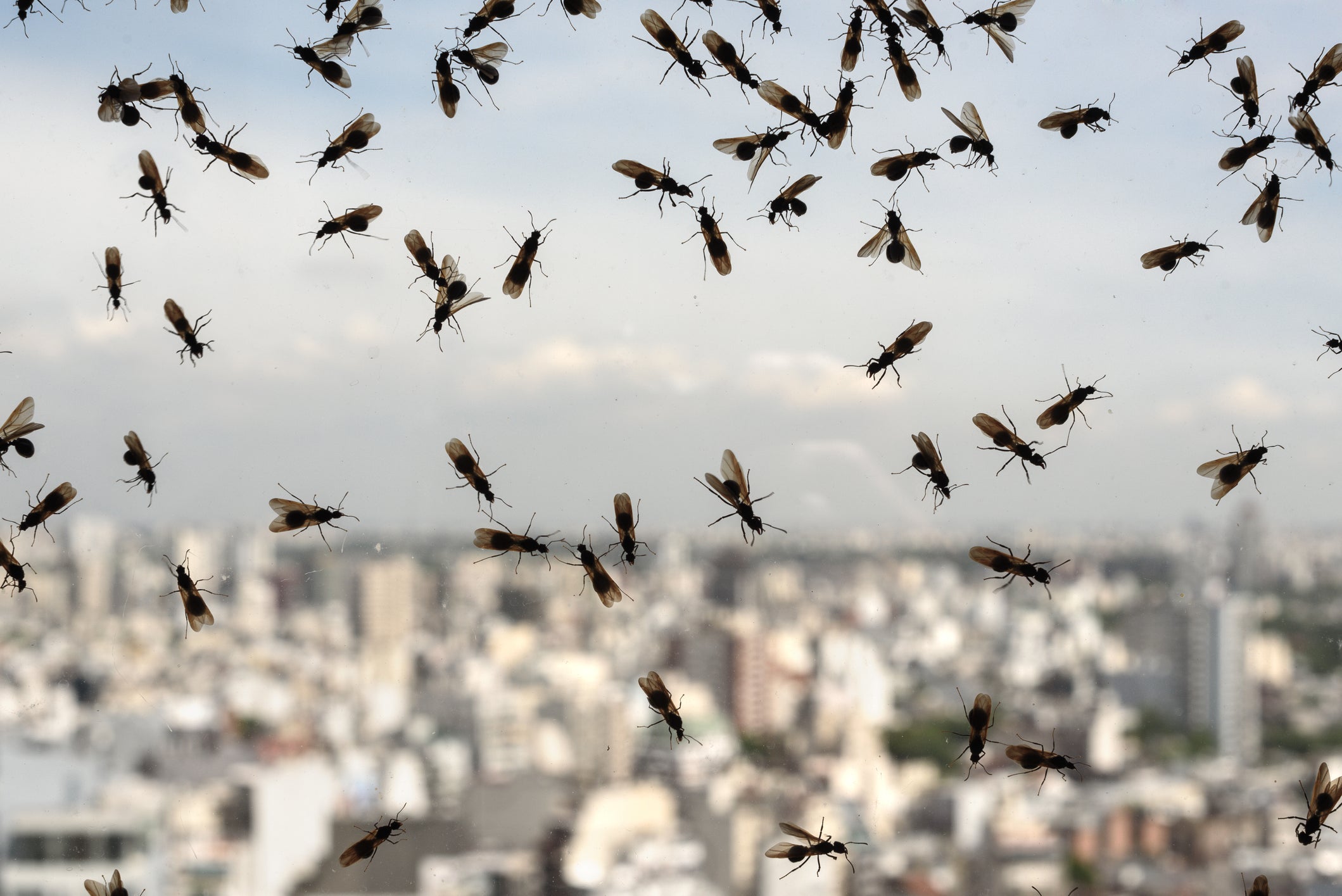The much-maligned "flying ant day", a summer phenomenon in Britain and Ireland, is poised to return as warmer weather persists across the UK.
Swarms of winged black garden ants, typically Lasius niger, erupt from their nests under lawns, flower beds, and stone patios to invade personal space, cling to laundry, and splatter against car windshields.
Their sheer numbers can be so immense that they have previously registered as drifting clouds on weather radars. Met Office forecaster Simon Partridge told the BBC that distinguishing them from patches of showers can be difficult.
The occurrence can be unpleasant and occasionally very irritating – memorably, tennis stars Caroline Wozniacki and Ekaterina Makarova had to interrupt a Wimbledon match in July 2018 to spray themselves with bug repellent as the result of an influx of flying ants to Court 1 – but it is largely harmless to humans and not something to worry about.
Nevertheless, to be forewarned is to be forearmed, so here is everything you need to know about this strangest of annual events.
Why does it happen?
The reason ants emerge from the ground in this sudden fashion is because they have reached the “nuptial flight” phase of their reproductive cycles, at which point those with wings (known as alates) – virgin queen ants (or princesses) and male drones, but not flightless female workers – depart their nests in search of new colonies, moving as one for protection.
As the queens race off, they emit pheromones to attract mates while flying as fast as they can to ensure that only the fastest and most capable males can reach them.
This is an example of natural selection in action, as the race makes certain that only the strongest examples of the species get to pass on their genes to a next generation.

The spread to fresh colonies further afield also serves to limit inbreeding as it means ants commingle with mates from other nests.
A queen – which can grow to 15mm in length and live for as long as 15 years in the wild, according to the Natural History Museum (NHM) – may have several mates during the nuptial flight and preserve their semen within her abdomen for a lifetime, with a view to fertilising future eggs.
She will go on to discard her wings by chewing them off and form new nests underground but her male suitors will simply fall to the ground and die without so much as a post-coital cigarette, their final moments on Earth presumably also among their happiest.
What weather conditions encourage it?
In Britain and Ireland, flying ant days typically occur in July or August, often in warmer urban areas first, when the weather is hot and humid and when winds are low.
Temperature is a key factor, with the Royal Society of Biology (RSB) noting that ant swarms rarely emerge if it is cooler than 13C and that 25C is their preferred seasonal average.
The RSB, incidentally, argues that we should think of flying ant seasons, rather than isolated days, as ants may well take to the air on multiple occasions over the course of a British summer, depending on the atmospheric conditions, the species of ant in question and the nature of their habitat among other variables.

What can be done about it?
Not a great deal, unfortunately. Some might advocate flooding the ants’ nests with water or detergent or attempting to snare them in sellotape around the home but that all feels distinctly inhumane.
Instead, your best bet is to stay out of their way as much as possible and console yourself with the integral role ants play in the maintenance of natural ecosystems.
Their colonies help to keep the soil aerated and they themselves are a vital source of food to birds like swifts and gulls, who in turn make important contributions to the natural order.
If you do get bitten or stung, do not be alarmed.
The NHS states that ant bites are “generally harmless, although you’ll probably feel a nip”.
Garden slugs and snails could now be considered venomous, study finds
The King and Idris Elba team up for new Netflix documentary film
Researchers reveal what Ancient Rome smelled like – and it’s disgusting
Groundbreaking study finds microplastics in human reproductive fluids
Dentist cracks centuries-old puzzle hidden in famous Da Vinci drawing
Scientists define six traits that make a person ‘cool’ – and they transcend borders







